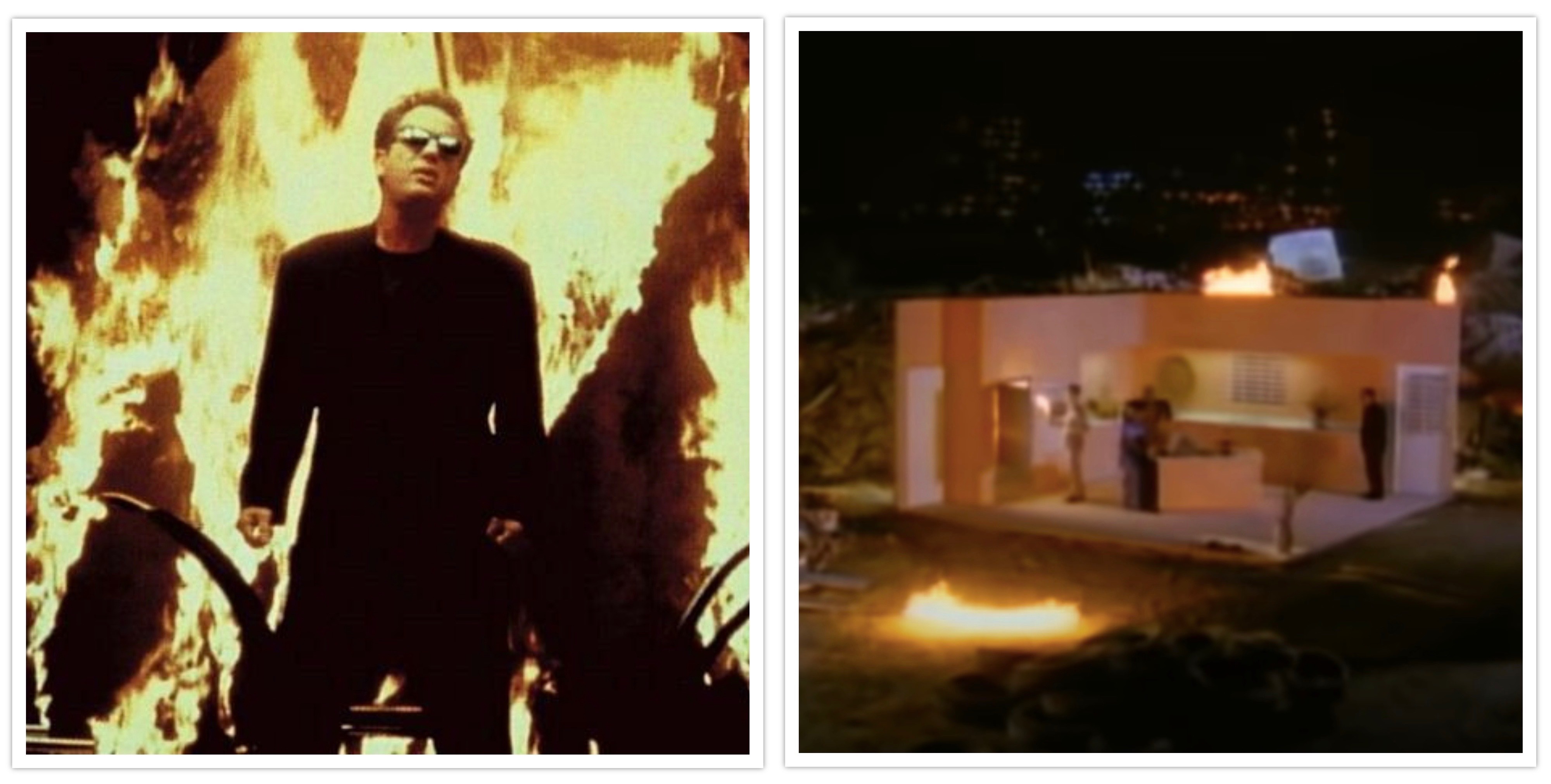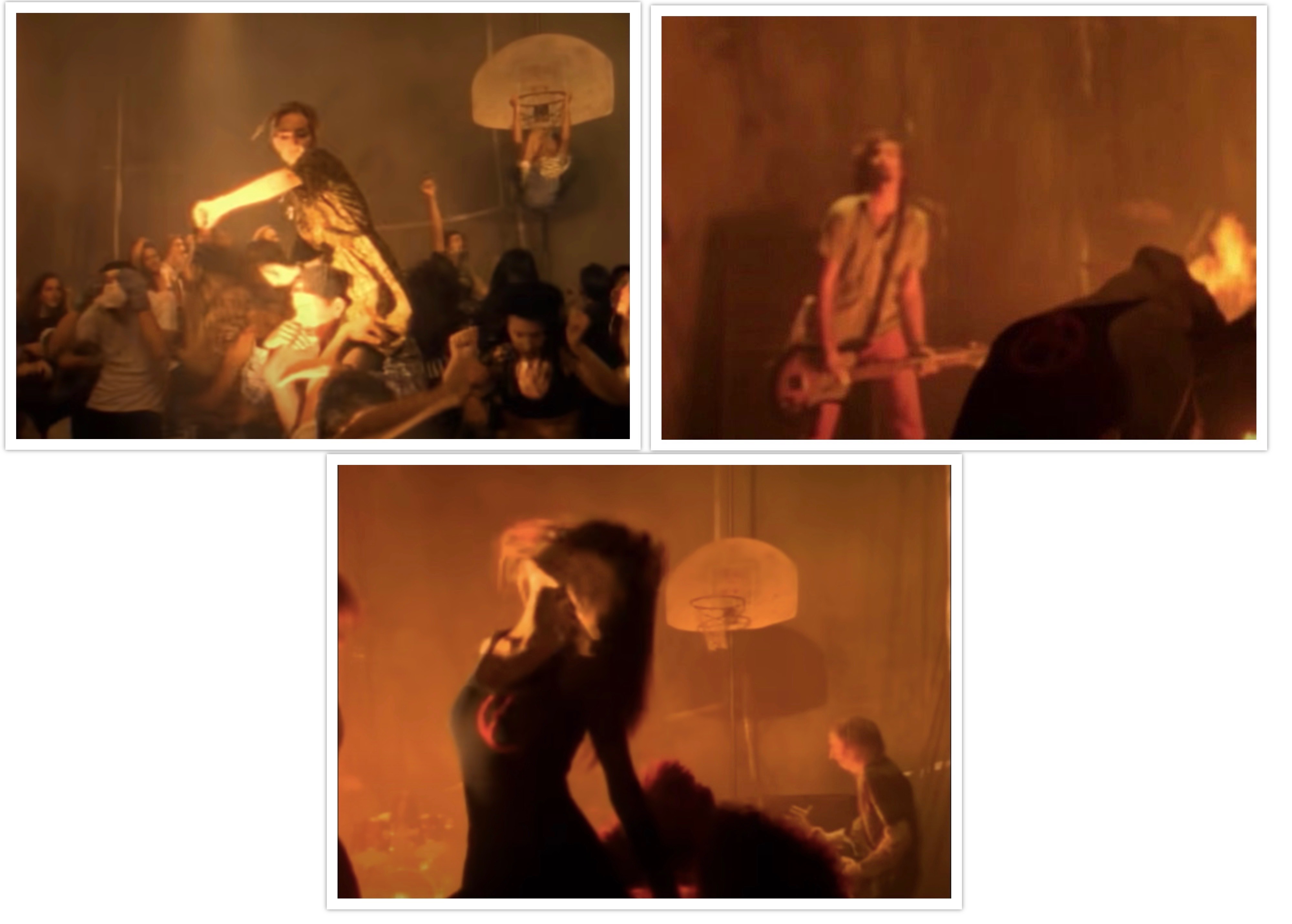Climax: Transgenerational Blame
“We Didn’t Start the Fire” and “Love It If We Made It” use their versions of nostalgia, romanticized and dystopian, respectively, to produce a transgenerational blame. In “We Didn’t Start the Fire,” Joel sings “But when we are gone / Will it still burn on, and on, and on, and on,” demonstrating this blame is transgenerational because the fault is never resolved. The blame is a never-ending battle: Joel says “We didn’t start the fire” while The 1975 says maybe not, but I’d “Love it if we made it.”
While the songs’ titles place fault on previous generations, they simultaneously note the metaphoric and physical destruction of the world that modern youth must combat. By challenging the continued American political standard of complacency and willful ignorance, Billy Joel and The 1975 place the blame for modern cultural issues on previous generations.
Similar to “We Didn’t Start the Fire,” the images plugged into “Love It If We Made It” serve as a reminder that certain events will never be unwritten from history, despite future generations’ neglect of them. Thus, the scream-along lyrics of “We Didn’t Start the Fire” and “Love It If We Made It,” combined with the videos’ images of social injustices, demonstrate a transgenerational frustration and anxiety of the youth who suffer from the consequences of previous generations’s actions.
This transgenerational frustration has survived throughout history. In “The Man Whom the World Sold: Kurt Cobain, Rock’s Progressive Aesthetic, and the Challenges of Authenticity,” Mazullo explains Generation X’s connection to grunge music. Mazullo notes that “Grunge is music for kids who grew up too fast. They keep reaching back for a childhood denied” (2000, 732). This same loss of childhood and innocence is emphasized in “We Didn’t Start the Fire” and “Love It If We Made It,” where modern youth must become adults to ‘deal with’ the consequences of their parents’ decisions. According to Courtney Love, grunge music is “‘a resounding fuck you to the Boomers and all the false expectations they saddled us with about the rock ‘n’ roll revolution. And it made psychological damage … a basis for social identity’” (Mazullo 2000, 732). With this politics of damage in mind, it can be seen that Joel and The 1975 use their rock/pop music and, specifically, the hooks of “We Didn’t Start the Fire” and “Love It If We Made It” to send this same message.
Overall, the similarities between Joel’s 1989 song and The 1975’s 2018 song demonstrate that, despite a denial of connection to the previous era and the current political climate, every generation is the same. Mazullo notes that “the cultural-political stances of Generation X are tellingly similar to those of the Boomers, especially with respect to the perceived authenticity in their respective choices of expressive cultural forms” (2000, 733). Each generation blames the previous one, yet they are all alike, bringing the blame full circle. Regardless of the almost 30 year age difference between the anthems, “We Didn’t Start the Fire” and “Love It If We Made It” both send the terrifying message of the effects of war and cultural events on the mental health of future generations.


